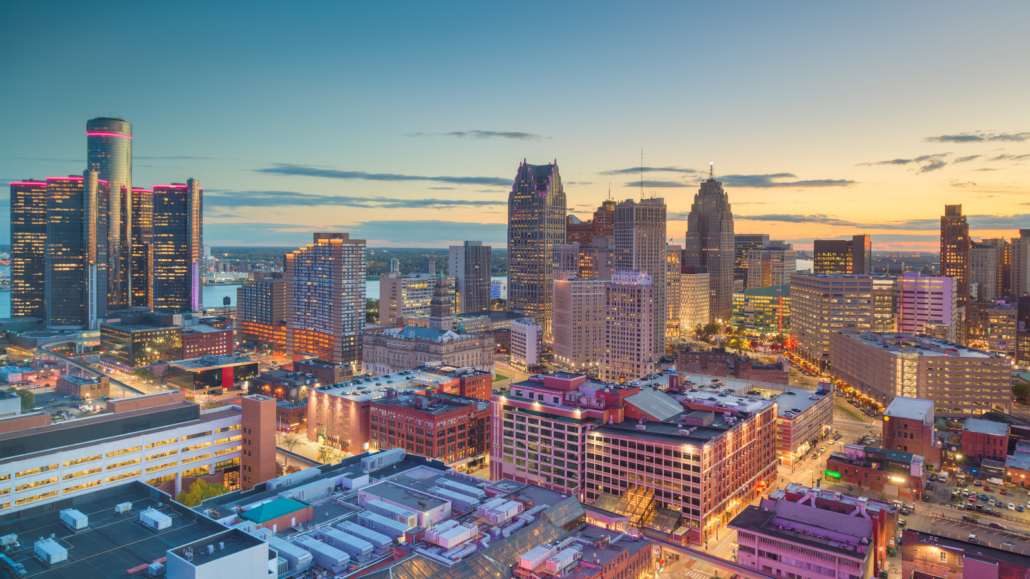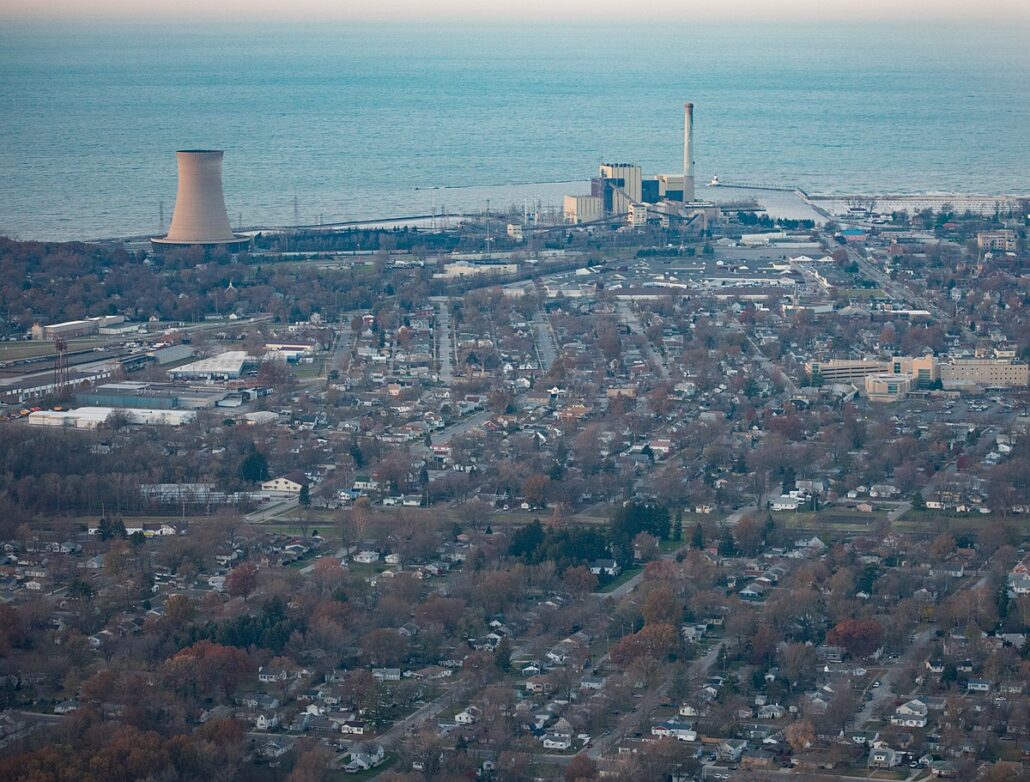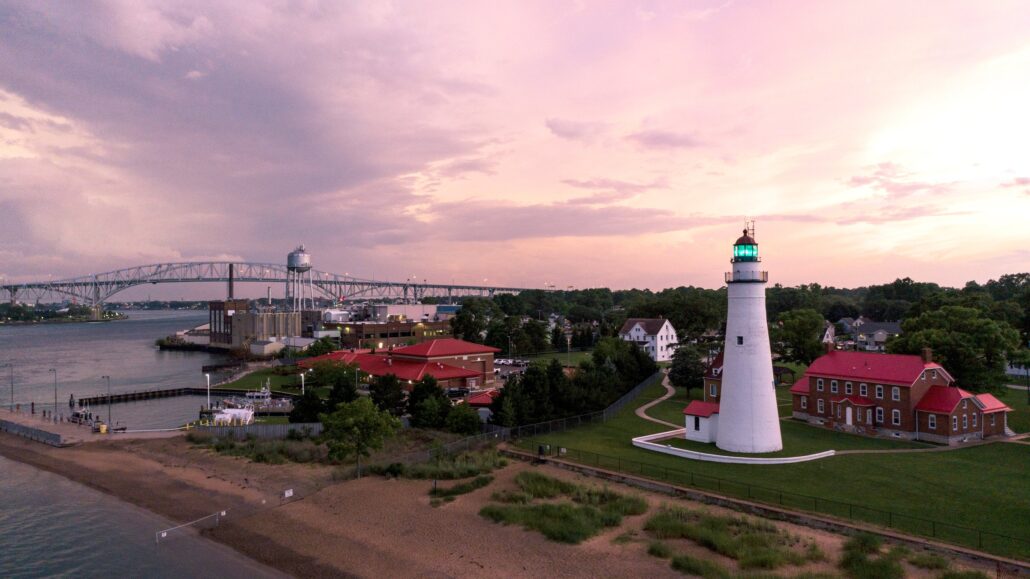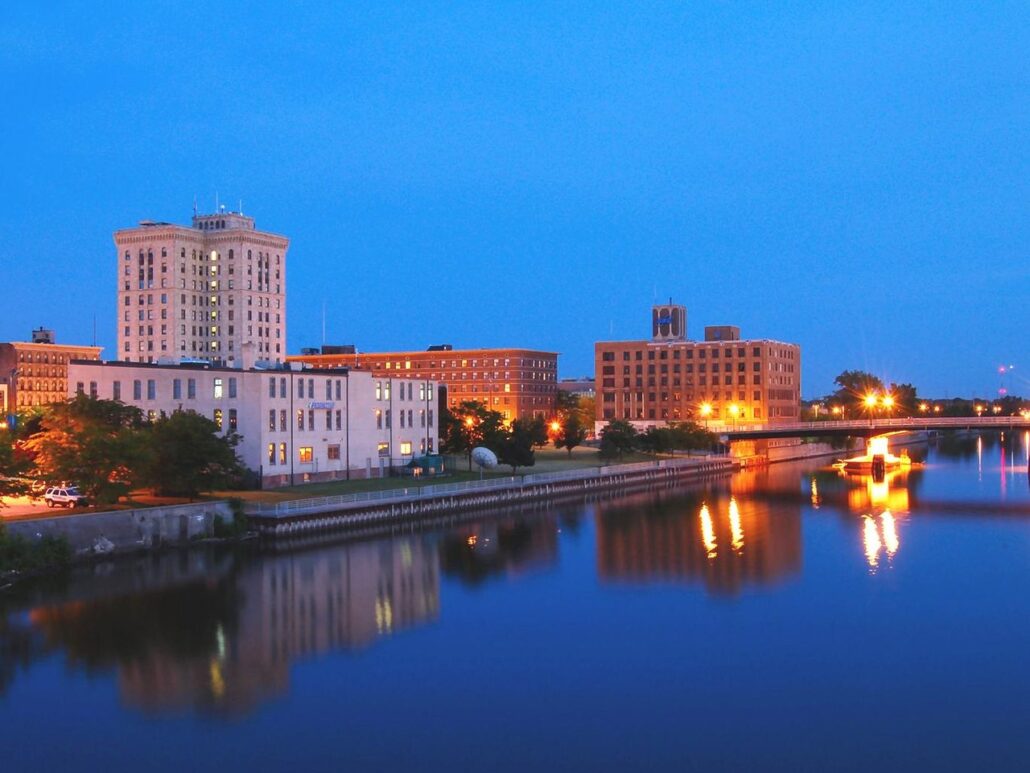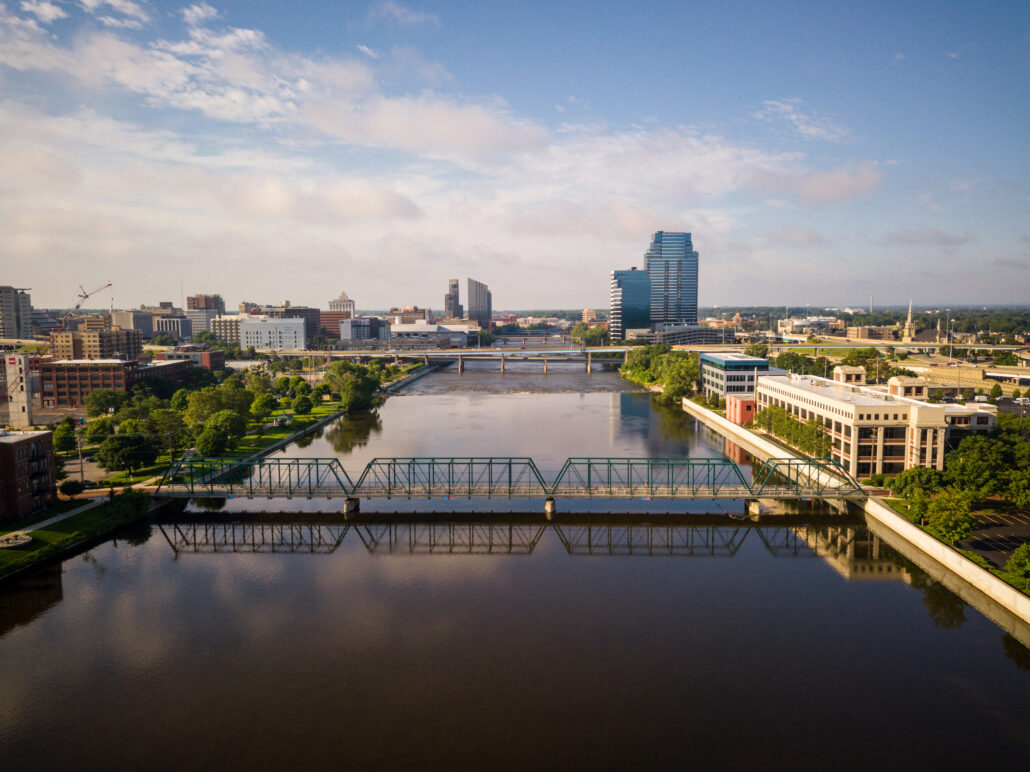Reviving Hope: Halfway Houses in Michigan
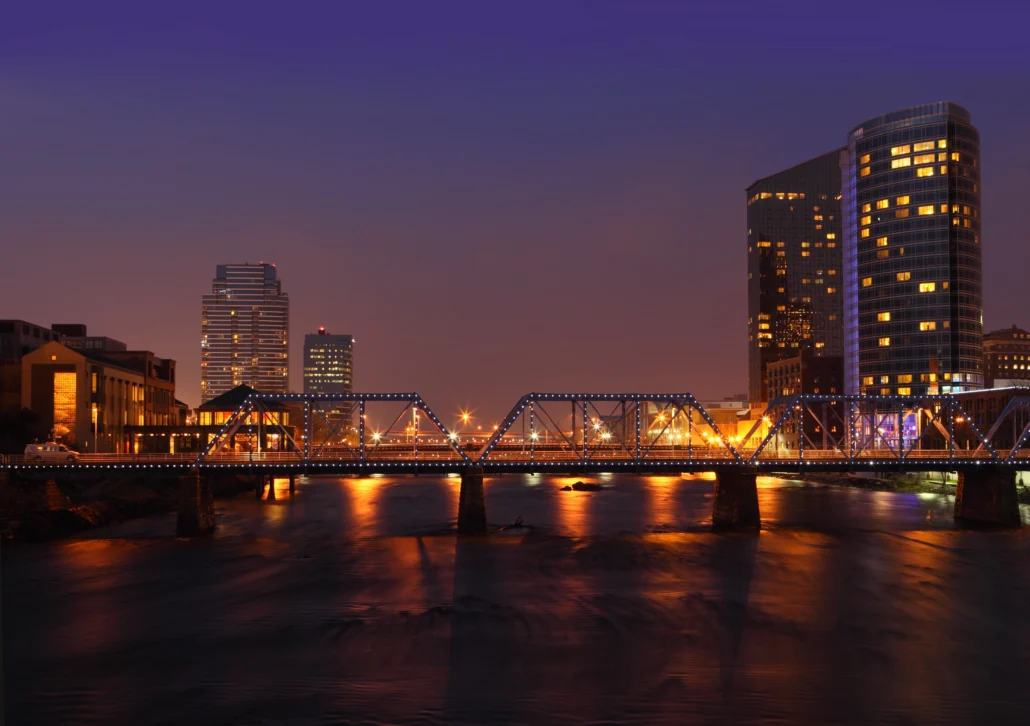
Michigan, a state known for its Great Lakes, diverse landscapes, and vibrant cities, grapples with significant challenges related to substance abuse. With alarming statistics revealing that approximately 15% of the population struggles with alcohol addiction, alongside 8% grappling with drug abuse disorders, the need for supportive resources like halfway houses in Michigan is paramount. Amidst this landscape, halfway houses serve as crucial sanctuaries for individuals seeking to overcome addiction and rebuild their lives.
From the bustling streets of Detroit, where substance abuse rates are particularly high, to the serene shores of Lake Michigan, where communities face their own unique struggles, each location offers a distinct setting for individuals to embark on the path to sobriety. In Michigan, the impact of substance abuse extends far beyond personal struggles, with 25% of crimes in the state being drug-related. Recognizing the interconnected nature of addiction and its ramifications, halfway houses in Michigan play a vital role in providing a supportive environment for individuals to navigate the challenges of recovery and work towards a brighter future.
Nurturing Recovery in Detroit: Halfway Houses in Detroit
Detroit, the largest city in Michigan and a cultural hub known for its music, art, and automotive heritage, is also a community grappling with issues related to substance abuse, including alcohol addiction. The city’s rich history and resilient spirit provide a backdrop for individuals seeking recovery.
Statistics reveal that Detroit experiences a significant number of alcohol-related incidents, underscoring the need for recovery resources in the community. Halfway houses in Detroit offer a supportive environment where individuals can focus on their recovery journey. Through counseling, peer support, and life skills training, residents can rebuild their lives and work towards a brighter, sober future in the heart of Detroit.
Embracing Healing in Grand Rapids: Halfway Houses in Grand Rapids
Grand Rapids, located along the Grand River in western Michigan, is a vibrant city known for its craft beer scene, thriving arts community, and outdoor recreational opportunities. Despite its many attractions, Grand Rapids faces challenges related to substance abuse, including alcohol addiction. The city’s vibrant nightlife and bustling downtown area contribute to a culture where alcohol consumption is prevalent.
Statistics indicate that Grand Rapids experiences a moderate number of alcohol-related incidents, highlighting the need for recovery resources in the community. Halfway houses in Grand Rapids provide a supportive environment where individuals can focus on their recovery journey away from the distractions of city life. Residents have access to counseling, group therapy, and recreational activities, fostering healing and growth in the serene surroundings of Grand Rapids.
Rebuilding Lives in Ann Arbor: Halfway Houses in Ann Arbor
Ann Arbor, home to the University of Michigan and nestled in the rolling hills of southeastern Michigan, exudes a youthful energy and intellectual vibe. However, like many college towns, Ann Arbor grapples with issues related to substance abuse, including alcohol addiction. The city’s vibrant social scene and collegiate atmosphere contribute to a culture where alcohol consumption is prevalent.
Statistics reveal that Ann Arbor experiences a moderate number of alcohol-related incidents, underscoring the need for recovery services in the community. Halfway houses in Ann Arbor provide a supportive environment where individuals can focus on their recovery journey. Through counseling, life skills training, and peer support, residents can rebuild their lives and embark on a path to lasting sobriety in the vibrant community of Ann Arbor.
Cultivating Renewal in Lansing: Halfway Houses in Lansing
Lansing, the capital city of Michigan, is a dynamic urban center known for its government institutions, educational opportunities, and diverse population. Despite its many strengths, Lansing faces challenges related to substance abuse, including alcohol addiction. The city’s central location and bustling downtown area contribute to a culture where alcohol consumption is prevalent.
Statistics reveal that Lansing experiences a moderate number of alcohol-related incidents, highlighting the need for recovery resources in the community. Halfway houses in Lansing provide a supportive environment where individuals can focus on their recovery journey. With access to counseling, life skills training, and peer support, residents can rebuild their lives and embrace a brighter, sober future in the heart of Lansing.
Finding Strength in Kalamazoo: Halfway Houses in Kalamazoo
Kalamazoo, located in southwestern Michigan, is a vibrant city known for its rich cultural heritage, thriving arts scene, and strong sense of community. Despite its many strengths, Kalamazoo faces challenges related to substance abuse, including alcohol addiction. The city’s diverse population and bustling downtown area contribute to a culture where alcohol consumption is prevalent.
Statistics reveal that Kalamazoo experiences a moderate number of alcohol-related incidents, underscoring the need for recovery services in the community. Halfway houses in Kalamazoo provide a supportive environment where individuals can focus on their recovery journey. Through counseling, group therapy, and recreational activities, residents can rebuild their lives and work towards a brighter, sober future in the vibrant community of Kalamazoo.
Renewal and Recovery: Embracing Sobriety in Michigan
In conclusion, halfway houses in Michigan stand as vital pillars of strength and support for individuals navigating the challenging journey of recovery from addiction. With their presence felt from the bustling streets of Detroit to the vibrant community of Kalamazoo, these facilities offer a crucial lifeline to those in need. Providing a safe and supportive environment, halfway houses in Michigan serve as sanctuaries where residents can heal, grow, and ultimately reclaim their lives from the grips of addiction.
As we stand on the threshold of possibility amidst the diverse landscapes of the Great Lakes State, let us embrace the journey of recovery with open hearts and unwavering resolve. Knowing that within Michigan, where substance abuse affects a significant portion of the population, hope springs eternal for those seeking a path to sobriety. Halfway houses play an indispensable role in this journey, guiding individuals towards a future filled with healing, growth, and renewed purpose.
Rivers Bend PC
(0)Primary Service: treatment program for chemical dependency
Address : 33975 Dequindre Street, Troy, 48083
Primary Service: Substance Use Disorders Program
Address : 16836 Newburgh Road, Livonia, 48154
Primary Service: Recovery Related Service
Address : 23400 Michigan Avenue, Dearborn, 48124
Primary Service: Mental Health Services
Address : 2091 Professional Drive, Flint, 48532
Primary Service: Substance Abuse Treatment Services
Address : 1900 West Stadium Boulevard, Ann Arbor, 48103
Primary Service: recovery related treatments
Address : 217 N Sycamore Street, Lansing, 48933
Primary Service: recovery related treatments
Address : 42475 Schoenherr Road, Sterling Heights, 48313
Primary Service: recovery related treatments
Address : 8150 East 13 Mile Road, Warren, 48093
Primary Service: recovery related treatments
Address : 3417 Eastern Ave. Se, Grand Rapids, 49508
Primary Service: recovery related treatments
Address : 3800 Woodward Avenue, Detroit, 48201
